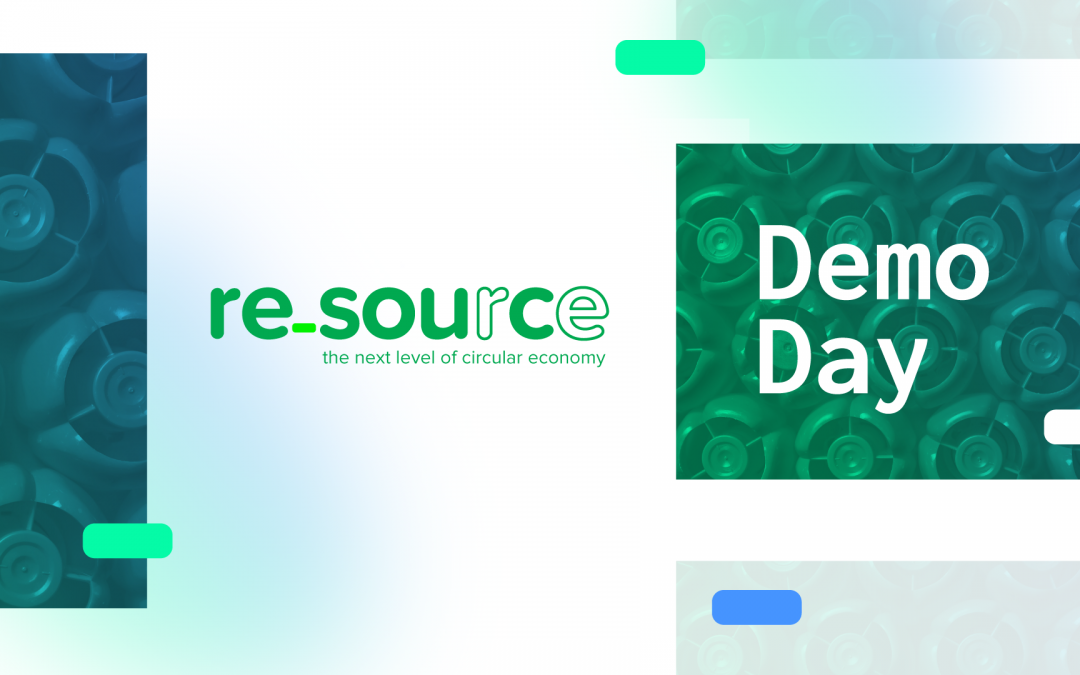
by cristina | Dec 14, 2021 | Corporates, Startups
“This partnership with Beta-i brought us extraordinary results, because we got to the end with solutions that actually solve critical and real problems and are aligned with Sociedade Ponto Verde’s strategic goals.”
Ana Trigo Morais, CEO at Sociedade Ponto Verde.
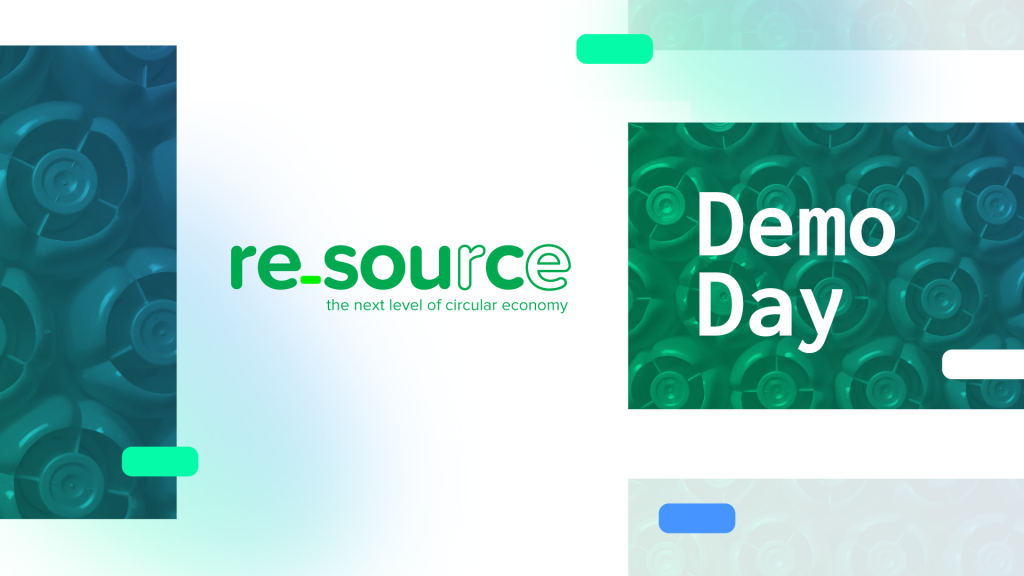
The Demo Day of re_source program marked the end of this pioneer edition in taking the next level of circular economy. It was also the time to show the collaborative work made between the startups and the pilot partners, throughout the last months:
FYCH & Nestlé | Tratolixo | Sociedade Ponto Verde
Startup FYCH, from Spain, is fighting the lack of structure to recycle multilayer packaging and the negative impacts that this gap has for brands. The innovators at FYCH are doing it together with Nestlé, Tratolixo and Sociedade Ponto Verde, by implementing – in recyclers of the Integrated System of Packaging Waste Management (SIGRE) – their delamination technology to separate the various layers of materials of these packages and enhance their recycling.
FYCH & Lusoforma
This time partnering with Lusoforma, the startup has also tested its technology in the recycling of the lid of aluminum take-away products, which are composed of paper, plastic and aluminum, obtaining separation results of 100%.
Magnomer & Super Bock Group | Tratolixo
Magnomer is creating a pilot with the Super Bock Group. The project consists of creating labels with magnetized ink, meaning they can be more easily separated from the plastic, hence allowing for better packaging recycling. The solution from the North American startup can increase recycling levels by up to 20% and make Super Bock the first company in Portugal to apply 100% recyclable labels on its bottles. Tratolixo will also be a partner in the screening tests of these packages.
Reath & Sociedade Ponto Verde | Super Bock Group
Coming all the way from Scotland, Reath has teamed up with Sociedade Ponto Verde and the Super Bock Group to monitor the packaging life cycle – through the creation of a digital passport to be placed on physical products. Overall, this solution will provide companies and consumers with the proper data on the usability and life cycle of a package and on which products are placed inside. Specifically to Sociedade Ponto Verde, it will allow the company to obtain information on non-reusable packaging placed on the market, as well as the necessary information to fill out the annual declaration (document that companies adhering to the Green Dot system fill out annually to report the total weight of this packaging).
Polytag & Lipor | Tratolixo | Sociedade Ponto Verde
Polytag, from the UK, has teamed up with Lipor, Tratolixo and Sociedade Ponto Verde to create a digital deposit return and rewards scheme in the Porto area. Their solution will use Polytag’s “describe, tag and trace” technology to first tag products with unique identifiers. Then, it will allow consumers to scan the codes with a purpose-built application and claim their deposits in the comfort of their homes. All this, without having to use inconvenient and expensive vending machines. The packaging will be disposed of via their normal bin or communal container system, creating a cheaper, more convenient and effective deposit return scheme in the area.
MyResonance & Lusoforma | Lipor
Also from the UK, innovators at MyResonance are working together with Lusoforma and Lipor to implement a social network in Portugal. It should use gamification techniques to empower organizations to communicate, promote and engage their communities to take collective action around ESG-based initiatives. This would turn each person/user into a brand ambassador while positively building an online presence and identity to promote a cleaner world.
More about re_source:
Re_source 2021 Video | Re_source: the brave ones taking the next level of circular economy | It’s time for re_source Bootcamp
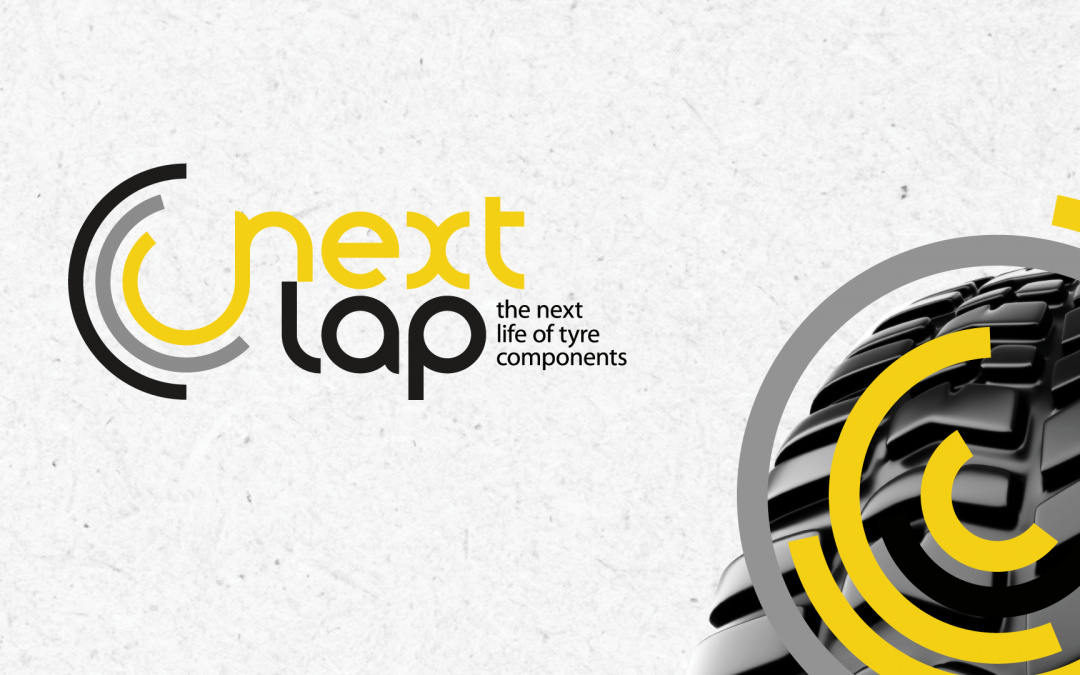
by cristina | Jun 25, 2021 | Corporates, Startups
NextLap is the open innovation program designed to give a new life to tyre components. Between September 2020 and May 2021, it joined innovators and industry partners to develop new solutions focused on the end-of-life tyres and its derived components – rubber, steel, and textile. And the results were truly rewarding!
NextLap is a program by Valorpneu and Genan, developed by Beta-i.
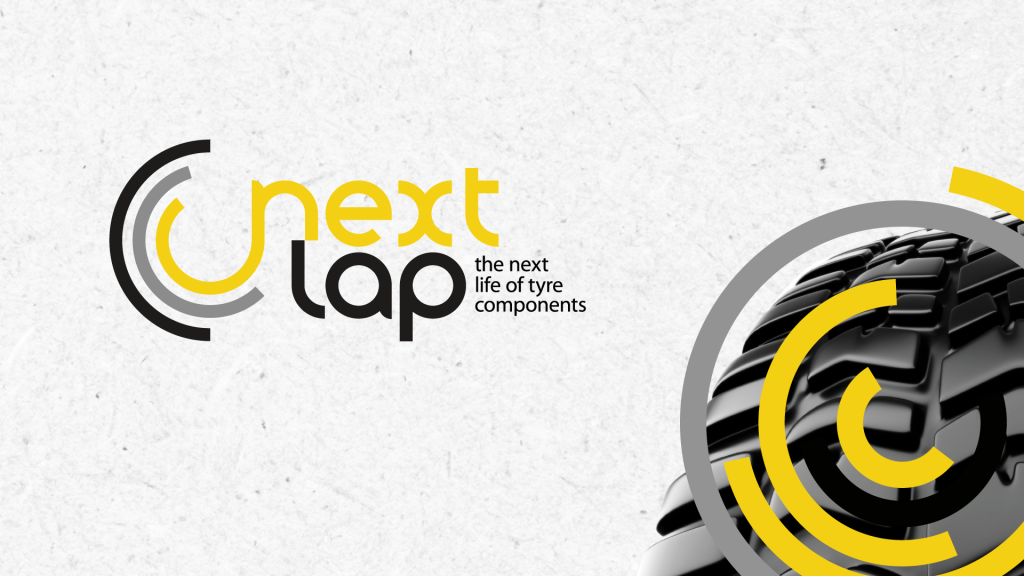
All about Sustainability
The Portuguese newspaper Jornal Económico has summed it up correctly: every year, around the world, over 30 million tons of tyres are discarded. Only in Portugal, we’re talking about 80 thousand tons, with 60% going to recycling and 40% to energy production. According to a study by Valorpneu, one of the main partners of NextLap, per each ton of recovered tyres, we’re avoiding about 1.3 tons of CO2 emissions and saving 37283 energy megajoules.
The most common usages of tyre rubber recovery are usually sports pavements, synthetic grass filling, isolation materials and concrete used in roads and airports. In the end, NextLap is all about sustainability and circular economy. Tyres go circular, always and forever.
Innovation road trip: finding new solutions…
In the end of its journey, NextLap gathered the final innovators and the program’s partners for a demo day, to show results of the work done between each other.
Two of the pilot projects developed during NextLap were the result of a collaboration between the worldwide known Decathlon and two of the innovators of the program: Rubberlink and Tintex, both from Portugal.
The innovators at Rubberlink have designed a devulcanized rubber solution that allowed Decathlon to create a shoe prototype with a recycled shoe sole.
Tintex, on the other hand, has used rubber powder to create the vamp of gymnastic shoes, a product to be tested also by Decathlon. This innovative solution is showing the never thought potential of this tyre material. Besides, Tintex is also considering reusing the textile material from tyres in bicycle saddles.
The program originated a total of five pilot projects.
Pavnext, also from Portugal, has developed an electric solution that reduces the speed of vehicles circulating within regions, covered by rubber made out of tyre recycling. Ruconbar, from Croatia, has presented a solution for acoustic barriers in trailways with rubber made out of tyre recycling.
… and Art
NextLap has taken tyre upcycling to a whole new level: Art.
“UNO” is a sculpture made out of derivatives from pieces of old tyres. This piece of art was made by Filippo Fiumani and João Mendonça (Luzíadas) with the curatorship of Departamento (Bruno Pereira). It gives a new life to materials that no longer have their original purpose.
“UNO” can be seen temporarily in Lisbon, by the docks, in Alcântara.
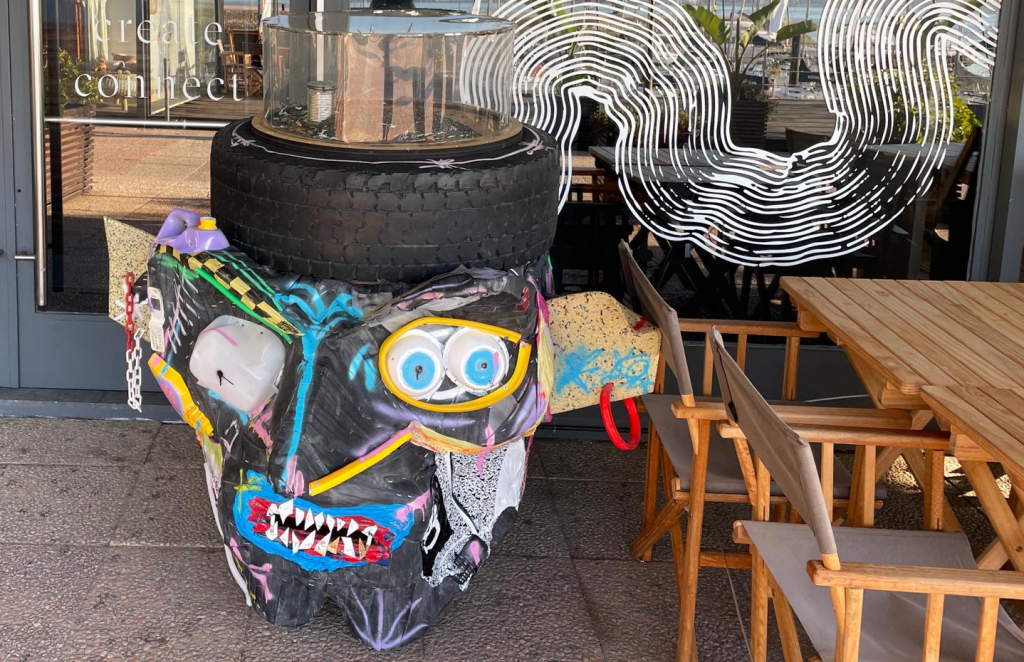
Designing the Future
José de Carvalho, Innovation Director at Genan, sums it right: “The goal of NextLap was to bring together innovators and industries and open the door for new solutions to turn into commercial circuits. The first objective was effectively achieved and, with the creation of the prototypes, it will be possible to evaluate all the inherent properties in order to enable the transition to mass production”
NextLap is just the first step of further collaborations. Innovators and partners have met, worked together and designed a new future for sustainability for the end-of-life tyres. We’re eager to see what the next lap will show.
Thank you!
______________
NextLap Partners
Main Partners: Valorpneu | Genan | Beta-i
Industry Partners: OPWAY | Pragosa | Mobinov | Decathlon | Extruplás | Procalçado | IP – Infraestruturas de Portugal | Houdini Sportswear
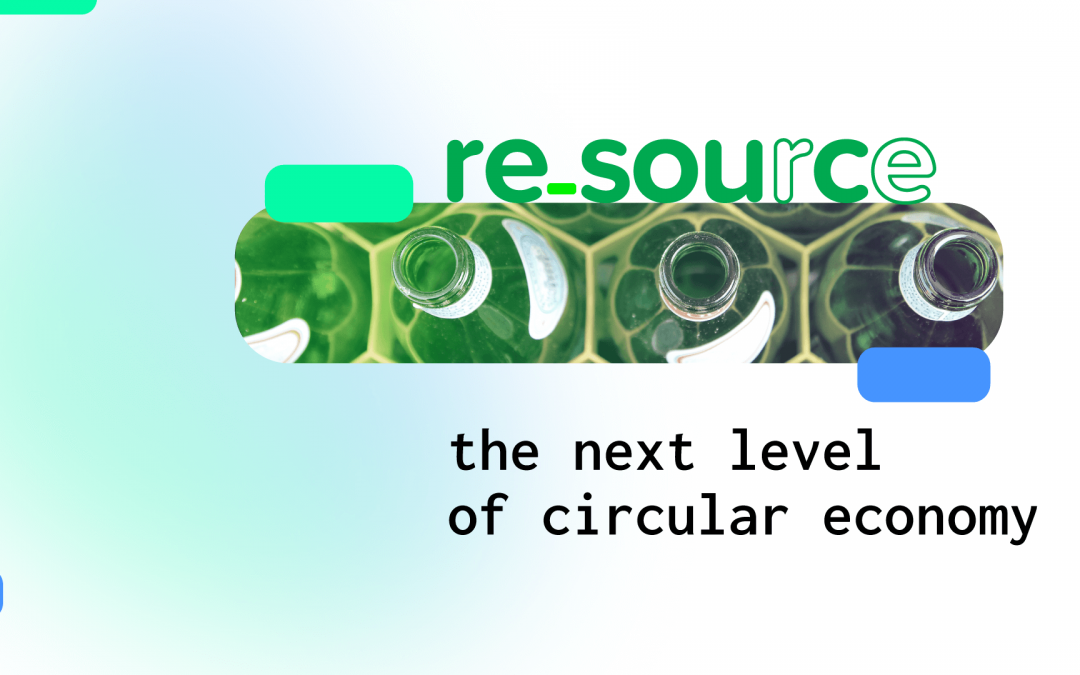
by cristina | May 7, 2021 | Corporates, Startups
re_source is the digital open innovation program by Sociedade Ponto Verde, focused on circular economy and digital disruption of packaging waste.
Being a Portuguese waste packaging management body whose mission is to manage the “take-back and recovery” of packaging, Sociedade Ponto Verde has brought re_source, in partnership with Beta-i, to bring new insights, technologies and scalable innovations to the packaging waste sector.
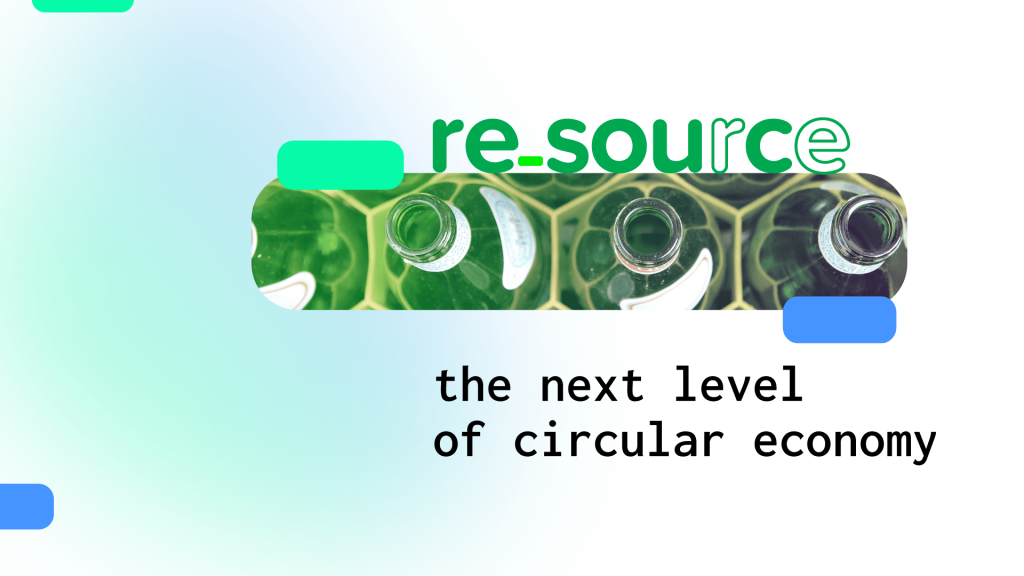
re_source is the way for international startups and innovators to develop, together and in collaboration with the pilot partners, the most innovative solutions to address challenges in this industry.
And who are these brave partners with whom the startups will work with, you ask? We answer – and you may find more about them in re_source’s website.
We have already 13 green rockstars in the source of innovation:
(re_source can still have more, though. If you’d like to join as a pilot partner, contact the team here)
The Municipality of Mafra mission is to plan, organise and implement policies that promote inclusive, smart and environmentally sustainable growth of the territory. The idea is to boost innovation and digital transformation, aimed at creating well-being for the citizens and generating value for investors.
- Cascais Ambiente
Cascais Ambiente is responsible for the urban cleaning and waste collection services in Cascais and is responsible for managing urban green public spaces, gambling and recreation, natural resource management and the coastline. https://ambiente.cascais.pt/
Manufactures recycled paper for corrugated cardboard. It has four lines of business: manufacturing of recycled paper for corrugated paper (Saica Paper), waste management and environmental services (Saica Natur), production of corrugated paper packaging (Saica Pack) and flexible packaging (Saica Flex).
Mail delivery service, both physically and digitally. Also includes services such as savings management, credits and insurance. Its mission is to foster innovation and forge relationships built on trust, through proximity and excellence, connecting both people and companies.
Manages, recovers, and treats the municipal waste produced in eight municipalities of the Greater Porto Area, in Portugal. Every year, it treats around 500,000 tons of municipal waste, promoting the adoption of integrated systems and the minimization of waste disposal in landfills. Four core areas of strategy: Multi-material Recovery, Organic Recovery, and Energy Recovery.
Leader in the production and commercialisation of disposable aluminium packaging for more than 40 years. Develops its activity in: cash & carries, food industry, patisseries/bakeries, catering and take away industries, including stores and supermarket chains.
Swiss multinational food and drink processing conglomerate corporation, present for over 150 years now. Nestlé unlocks the power of food to enhance the quality of life for everyone, today and for generations to come.
Urban hotel with a sustainable tourism concept, certified according to standards ISO 9001, 14001, and 45001, and the Green Key certification. Open since 2011, it has also won the We Care and We Share seals from the AHP, the Green Project Award, and the Zero Carbon Certification.
Projects, produces and commercializes a complete set of solutions for temporary waste containerization and related services. As the Iberian market leader of recycling containers, it has approximately 200 thousand units of its star product, CYCLEA, installed.
Founded in 1934 as a major beer seller company. Nowadays part of the Heineken company, SCC is a leading company in terms of innovation in the drinks market, and aware of its potential as a driving force for growth and development.
Major Portuguese soft drinks company with a multi-brand, multi-market strategy, whose core business is based on its operations in the Beer and Bottled water businesses. Includes soft drinks, wines, malt production and marketing and tourism.
Municipal Solid Waste Management (MSWM) company. Responsible for integrated management of municipal solid waste produced in the municipalities of Cascais, Mafra, Oeiras and Sintra, in Portugal.
Vidrala (founded in 1965) produces glass containers for a wide range of food and beverage products. It is the 4th largest manufacturer in Western Europe, with eight complementary production centers located in different countries (Spain, Portugal, Italy and UK) and around 3500 employees.
It’s very exciting to have all these pilot partners on board.
The selected startups and innovators will be able to work together with a varied range of experts to disrupt the packaging waste system. Startups and innovators can apply to re_source until May 16, 2021.
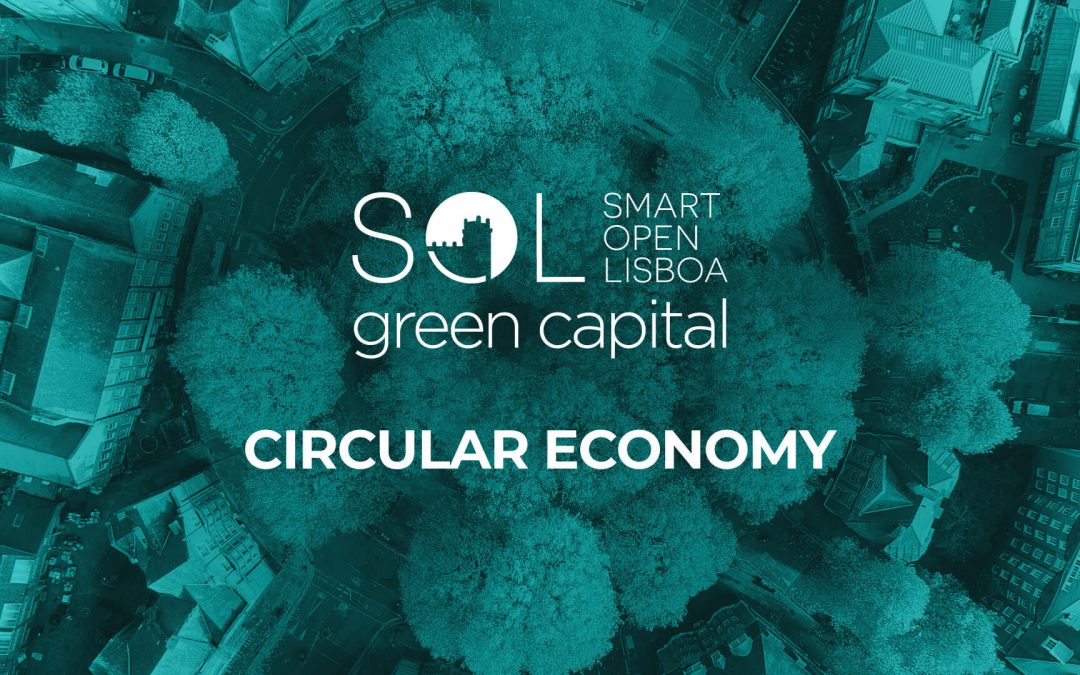
by cristina | Mar 11, 2021 | Featured
Circular economy is one of the industries Beta-i is focusing on in 2021. Finding new solutions that will reduce or eliminate waste while optimizing resources is a priority. Besides, innovation in this area has a great potential to grow.
SOL Green Capital is one of the examples of this year’s effort for a more sustainable world. This is the Green and Circular economy vertical of Smart Open Lisboa (SOL), a startup implementation program designed to upgrade the city’s life. Smart Cities focus on Green and Circular economy.
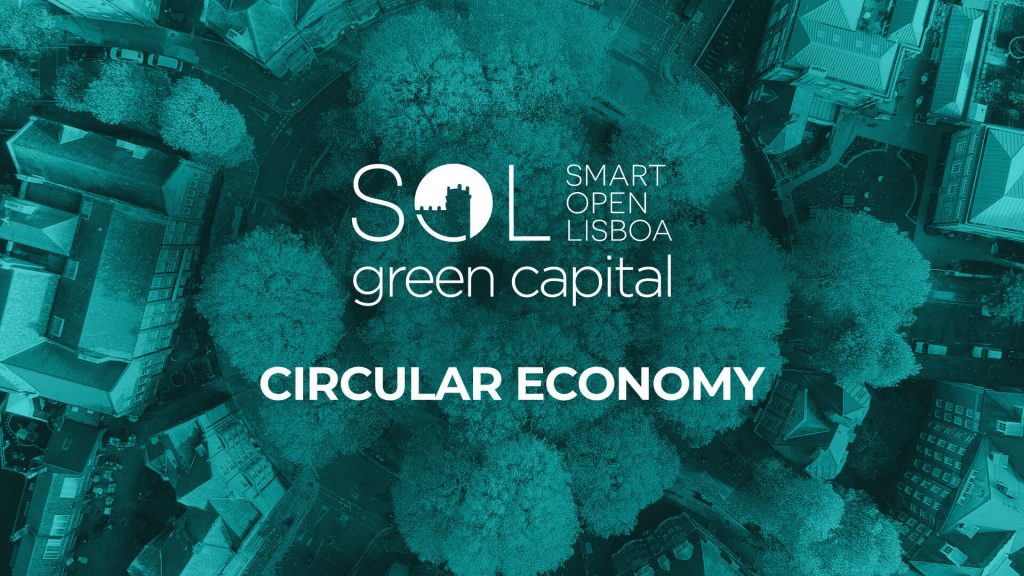
Focused on the validation and integration of innovative solutions, SOL Green Capital complements Lisbon’s identity as the European Green Capital 2020. Also, it leverages on collaborative innovation to turn it even more people-friendly, green and sustainable.
SOL Green Capital has been taking applications from startups to work closely with the piloting partners Águas de Portugal, Brisa, Delta Cafés, Galp and SONAE Sierra.
Applications closed on March 7, 2021 with a total of 188 applications from startups in 39 countries. As the eligible solutions should focus on turning the city smarter, greener, and more sustainable, they must also address one or more of the six challenges presented by the program. All challenges were represented in the applications received:
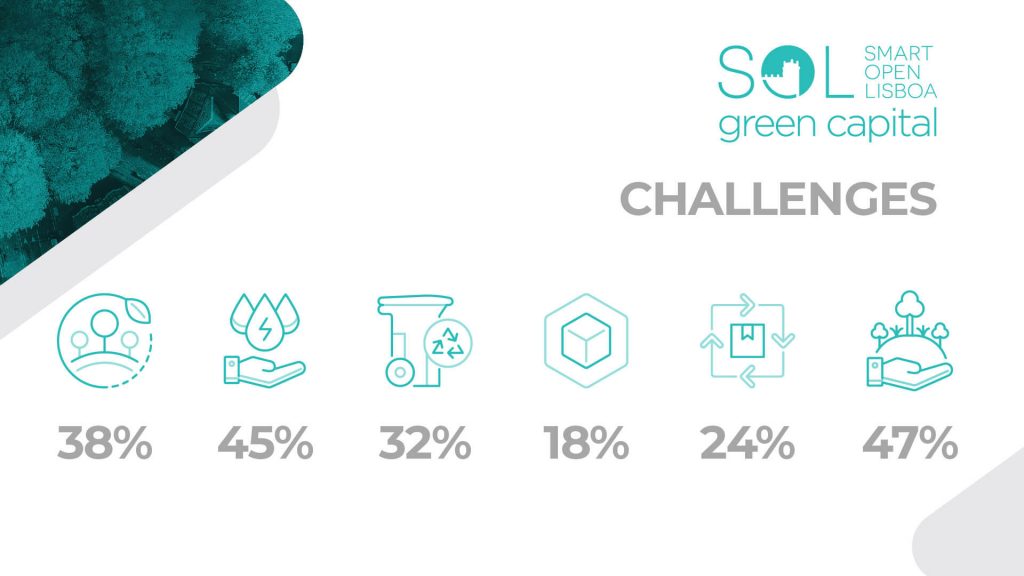
After a first screening of all applications, the pre-selected applicants will be performing an online pitch before the jury. Afterwards, about 15 to 20 startups will be taking part in the Bootcamp of the program.
Only the ones with the strongest fit will be moving forward to the Experimentation Phase. This is where the startup teams will work closely with the program partners who have selected them and work on their pilots, together.
SOL Green Capital’s Bootcamp will take place in April 2021. The Experimentation phase will occur right after, from April to July of the same year.
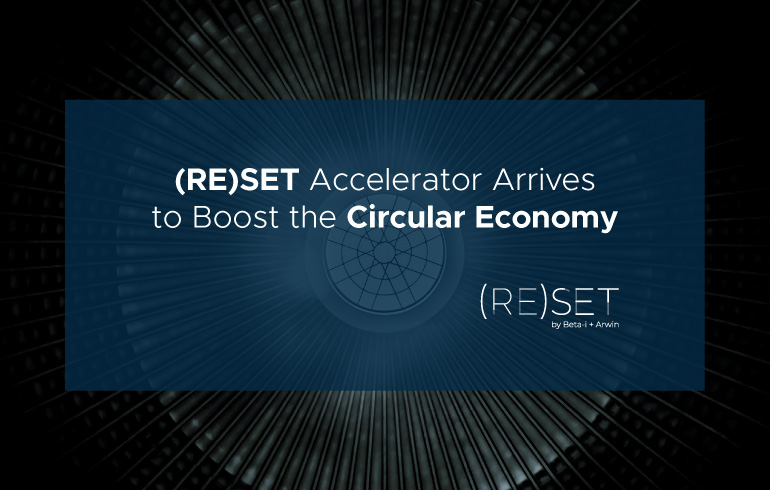
by silvia | Mar 25, 2019 | Corporates, Investors, Startups, Uncategorized
Arwin and Beta-i are launching a new joint initiative, called (RE)SET, a European accelerator 100% dedicated to innovations in the Circular Economy. The goal is to enable major groups to identify global innovations and integrate the best ones into their economic and industrial models.
Géraldine Poivert, former Deputy Managing Director of Citeo and co-founder of Arwin, and Pedro Rocha Vieira, President of Beta-i, announced today the creation of (RE)SET, a joint venture combining Arwin’s expertise in the field of Circular Economy and Beta-I’s know-how in the field of open innovation and acceleration.
(RE)SET is the first European initiative dedicated to innovation in the circular economy sector for large groups in different industries. Between Paris and Lisbon, this project aims to support industrial groups in their ecological transformation and to place the circular economy at the heart of their strategic and industrial development.
New consumer trends, regulatory pressure, ability to attract talents or investors, and future business models around resources and energy – these are some of the complex challenges driving the circular economy.
For large companies, the environmental arena is becoming clearly strategic. The challenge is no longer to convince, but to act, and move from a risk and compliance model to an opportunity and competitiveness based logic. Because the best performers on Circular Economy topics will necessarily be the best placed to become the champions of tomorrow, as the pressure on natural resources and the risks related to climate change impact the economic world.
With (RE)SET, the industry springs into action
The (RE)SET approach is simple: to associate the leaders of each industrial ecosystem with the best environmental innovations, so that they can collaborate effectively and deploy concrete solutions adapted to the needs and projects of companies. By combining the production capacities of the major groups and the inventiveness of the most innovative companies, companies can strengthen their competitiveness and find viable markets. (RE)SET aims to create a virtuous circle that combines growth and economic attractiveness, while effectively addressing the challenges of climate change.
We combine economy, ecology, strategic analysis and operational implementation. (RE)SET provides essential solutions to start the circular economy on a large scale. Yesterday’s promises are today’s truths: replacing plastic packaging, transforming food waste into biogas, eco-designing furniture or filtering microplastics in water, it is possible today if we use the right methods.
Géraldine Poivert, co-founder of Arwin and President at (RE)SET.
Entire industries and ecosystems have been transformed very quickly thanks to Open Innovation’s new methods. By using the methods we have developed and proven in trade, electronics and energy to solve the problems of climate change, we will enable major groups to integrate the best environmental solutions to meet these now strategic challenges.
Pedro Rocha Vieira, CEO at Beta-i.
A first program dedicated to Plastic-free Packaging
The first (RE)SET Open Innovation Circular program concerns plastic packaging. Made mainly of materials that are non-renewable and non-degradable and with high carbon emissions, plastic is a key component of our daily activities.
Why packaging first? Because plastic has made it possible to make significant progress on this market to fight food waste, create robust food barriers, lighten containers and above all lower costs. Today, 41% of all plastic production is used for packaging. However, these do not degrade when abandoned and are extremely difficult to recycle into an economic equation that makes sense.
In line with their commitment to the “National Plastics Pact for 2025”, Carrefour and Système U will be the first companies to engage (RE)SET to find the most promising plastic packaging alternatives, for use in stores and retail spaces. The accelerator will allow them to replace part of their plastic portfolio with improved fiber packaging, and to bring about faster change in the technologies and materials used.
Get to know (RE)SET Retail here.
Commitment towards a sustainable future
Several other programs are being prepared with major sponsors in the areas of water, capital goods, biowaste or textiles, for example. Through these programs, (RE)SET and its partners are taking a step by step approach, balanced with both conviction and efficiency, in the fight against climate change.
Get to know the (RE)SET project here.











